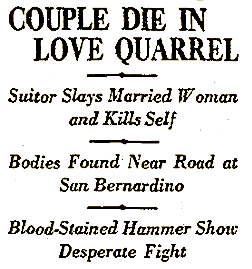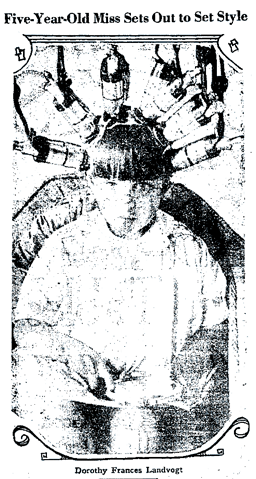December 4, 2007
Los Angeles
Like many people, Mr. and Mrs. Harry Franklin of 181 Griffith Avenue like to have a little nip now and then, a simple pleasure made exceedingly difficult these dry days. Of course, there are ways of getting around the Volstead Act, but these often prove risky. Just what the cops were doing in the Franklin family bathroom on November 2, the Times didn’t reveal, but the lawmen discovered eleven pints of whisky there.
This week, the Franklins came before Municipal Judge Sheldon. In an unusual move, Ludie Franklin, Harry’s wife, asked to be substituted for her husband as the defendant in the case. Harry, it seems, had already been twice convicted on liquor charges. If found guilty a third time, the judge could send him up the river for year or two. Judge Sheldon agreed to this novel plan and Ludie went before the jury, who found her guilty as charged and sentenced her to forty days in the clink. Let’s hope Harry had a nice, dry celebration for her when she got out.








 November 10, 1927
November 10, 1927








